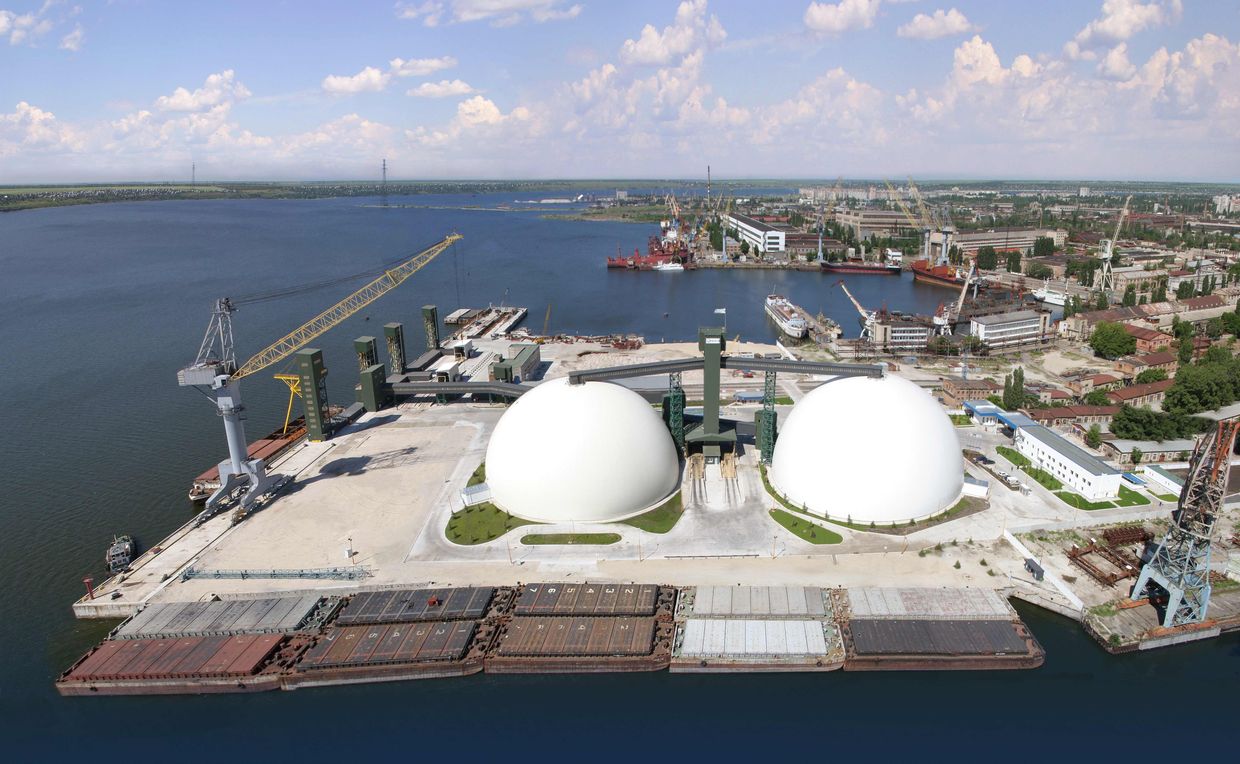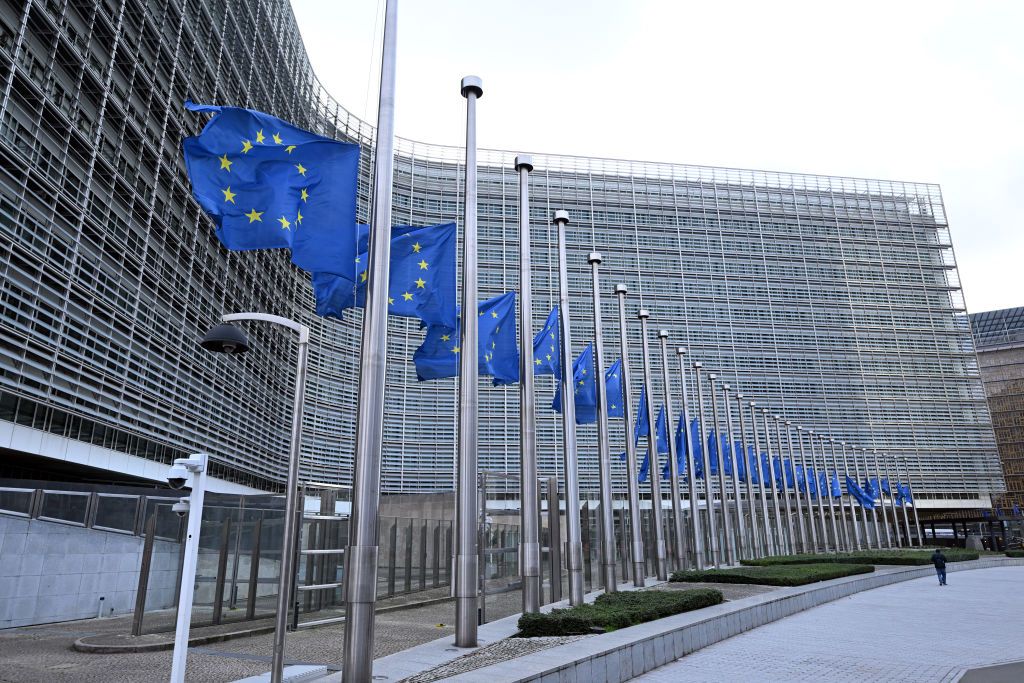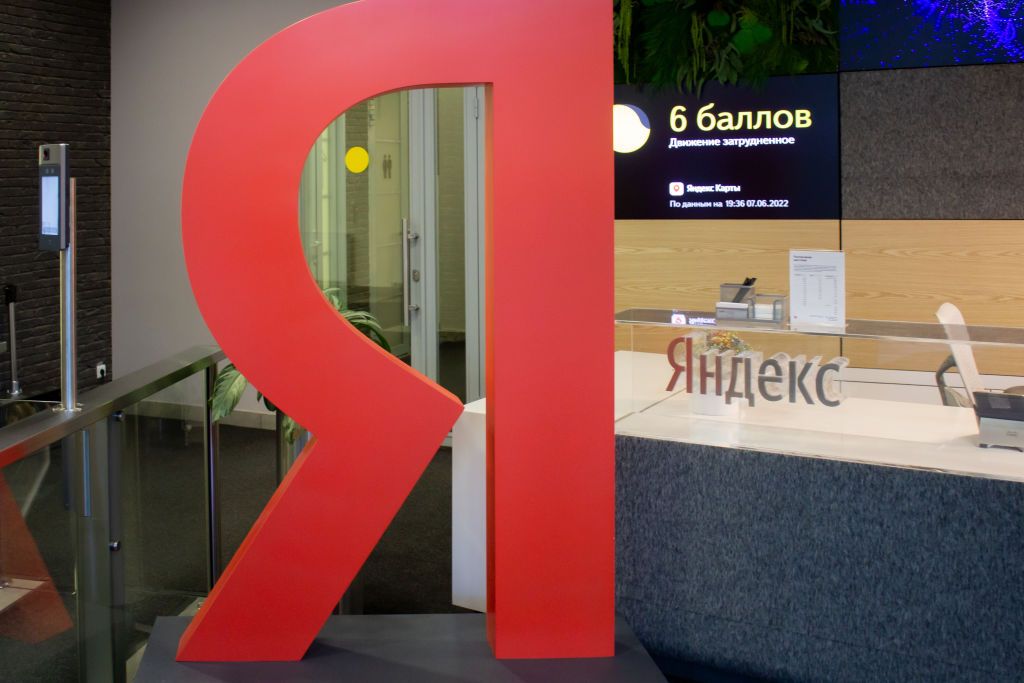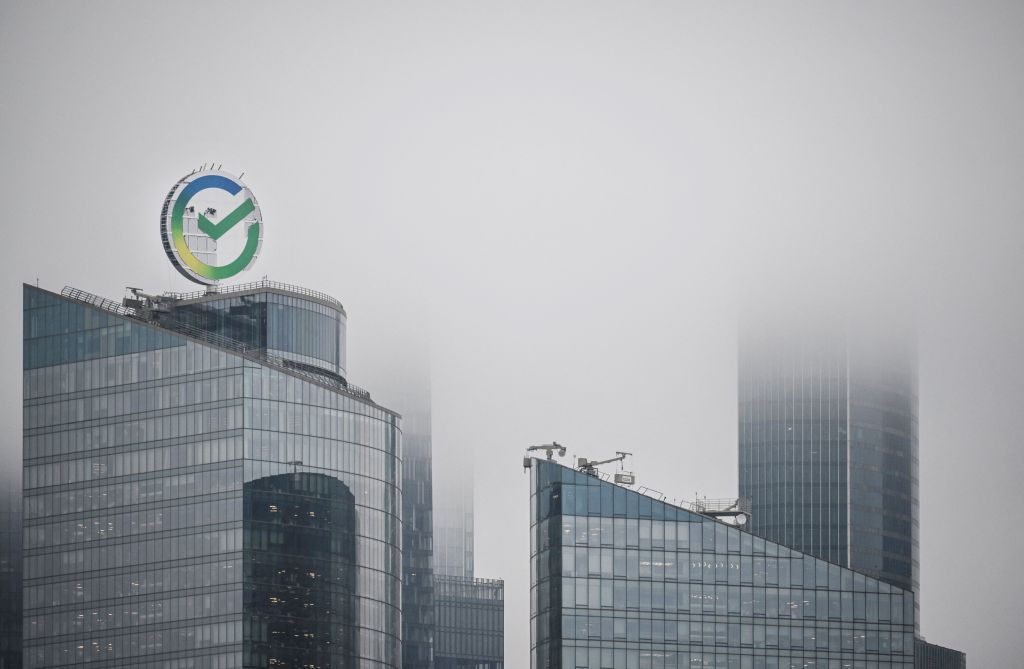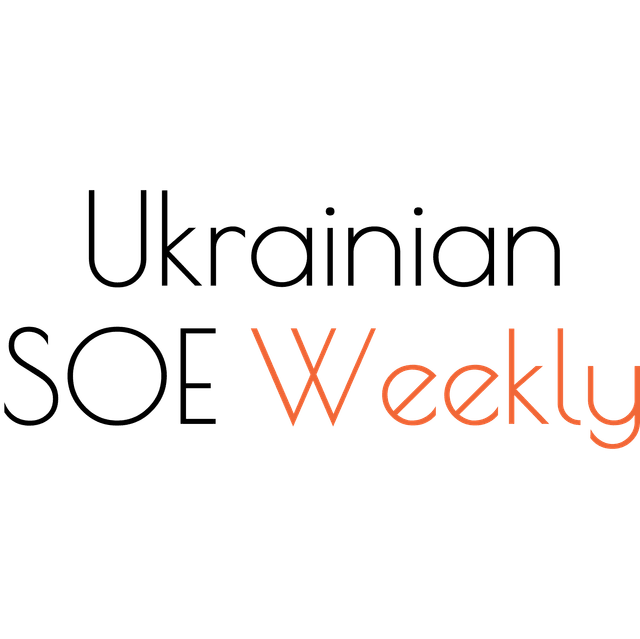Ukraine state-owned enterprises weekly — Issue 117

Editor’s Note: This is issue 117 of Ukrainian State-Owned Enterprises Weekly, covering events from Jan. 27-Feb. 2, 2024. The Kyiv Independent is reposting it with permission.
Ukrainian SOE Weekly is an independent weekly digest based on a compilation of the most important news related to state-owned enterprises (SOEs) and state-owned banks in Ukraine. The contents of this publication are the sole responsibility of the editorial team of the Ukrainian SOE Weekly. The SOE Weekly is produced and financed by Andriy Boytsun. Communications support is provided and financed by CFC Big Ideas. The SOE Weekly is not financed or influenced by any external party. Editorial team: Andriy Boytsun, Oleksiy Pavlysh, Dmytro Yablonovskyi, Oleksandr Lysenko, and Mariia Kramar.
Reforms
Updated IMF Memorandum. On Dec. 11, 2023, the International Monetary Fund (IMF) published an updated Memorandum of Economic and Financial Policies after its second review under the Extended Fund Facility (EFF) for Ukraine.
Ukraine’s key commitments related to SOEs include:
- All banks with majority state ownership will remain under the responsibility of the Finance Ministry, and any nationalized non-systemic banks will be immediately transferred to the Individuals Deposit Guarantee Fund (DGF) for resolution (new Continuous Structural Benchmark).
See Issue 116 on PINbank, which was confiscated from sanctioned Russian oligarch Giner and transferred to the State Property Fund of Ukraine (SPFU). It is unclear why PINbank’s shares were given to the SPFU rather than the DGF.
- In preparation for the privatization of state-owned banks, review and update as necessary the 2012 draft law on state-owned banks privatization in consultation with international financial institutions and submit it to parliament by end-March 2024.
- Develop strategies for the Ukrainian Financial Housing Company and Export Credit Agency by end-November 2024 to align with the general targets of financial sector development.
- Implement a procedure for conducting performance assessments for all state-owned banks in 2024. The first such performance assessment will be conducted for each of the banks in early 2025 (based on 2024 performance). In August 2025, the Finance Ministry will publish the key findings of its first annual assessment, together with the Cabinet’s proposed actions to address the findings.
- By early 2024, adopt a draft law (No. 5593-d) to bring the SOE corporate governance framework broadly in line with OECD Guidelines on Corporate Governance of SOEs and mitigate fiscal risks.
In the earlier, July version of the IMF Memorandum, the deadline for this draft law was October 2023.
- Ensure a strong gatekeeper role of the Finance Ministry in its relationship with SOEs on financial predictability, reporting, transparency, and accountability, including approving the key financial metrics through the financial plans or in the annual owner’s letters for natural monopolies and strategic SOEs.
- Follow up on the adoption of Draft Law No. 5593-d with a new secondary legislation such as the operationalization of SOEs’ financial planning process, including financial indicators that are consistent with the gatekeeper role of the Finance Ministry. This will also include a revamped nomination process and effective independent evaluation procedure for SOE supervisory boards, consistent with OECD standards.
- Assess the financial conditions and fiscal risks of SOEs in the state ownership policy by end-March 2024.
- Produce a comprehensive state ownership policy, dividend policy, and privatization strategy (new Structural Benchmark, end-August 2024).
- Ensure an independent evaluation of the supervisory board of the Gas Transmission System Operator of Ukraine (GTSOU) one year after its appointment.
- Seat a seventh member on Naftogaz’s and Ukrenergo’s supervisory boards and launch an independent evaluation of their supervisory boards in early 2024 and conclude it by end-June 2024.
SOE Weekly team members propose Vision 2030 for state property. The Union of Ukrainian Entrepreneurs (UUE) published a report titled “Ukraine after Victory: Vision 2030 – Economic Policies." Top think tanks, esteemed economists, and public figures have collaborated on the Vision, UUE said.
SOE Weekly team members Andriy Boytsun and Dmytro Yablonovskyi drafted the chapter on state property. They base their vision on the assumption that Ukraine completes its transition to a free market economy, the process that it started in 1991.
Andriy and Dmytro’s Vision 2030 for state property is as follows:
- Citizens perceive private property as more efficient than state property;
- Private ownership is the rule, with state ownership being an exception;
- The OECD Guidelines on the Corporate Governance of SOEs have been fully implemented for the small number of enterprises that remain state-owned.
The primary steps to achieve that vision include:
- Developing a strong and enforceable state ownership policy that describes the rationale for owning SOEs;
- Doing a triage to categorize SOEs based on the criteria in the state ownership policy, and then sorting them into groups of SOEs to be liquidated, privatized, or state-owned;
- Reforming corporate governance of the SOEs that are to remain state-owned.
The full report is available on the UUE’s website.
The Energy Community publishes recommendations on Ukrainian SOEs in the gas market. The Energy Community Secretariat published a document titled “A need for the reforms of Ukraine’s gas market." This is a high-level assessment of the status quo of Ukraine’s gas market and recommendations for its sound improvement and structural transformation.
The key SOE-related recommendations are:
- Establish a roadmap for the reform of the public service obligation (PSO) schemes with steps leading to their phase-out.
According to Naftogaz’s 2021 annual report, indirect subsidies to consumers in 2022 were expected to increase to Hr 842 billion ($22 billion) – as much as an astonishing 19% of Ukraine’s nominal GDP.
- Re-introduce a competitive tender for the supplier of last resort (SoLR) with no price caps.
As we wrote in Issue 102, the Cabinet designated Naftogaz’s subsidiary, Naftogaz of Ukraine Gas Supply Company, as the SoLR in the gas market without a competitive selection. Naftogaz will keep that role until the end of martial law, plus six months.
- With the increasing role of the gas storage systems for the EU market, enhance the corporate governance of the gas storage operator, Ukrtransgaz, taking the Gas Transmission System Operator of Ukraine (GTSOU) as a role model.
Ukrtransgaz could be spun off from Naftogaz to operate independently or incorporated in GTSOU for operational decision-making and optimisztion.
As we reported in Issue 98, on 28 July 2023, the Verkhovna Rada, Ukraine's parliament, adopted Draft Law No. 9311-1-d on the corporate governance of GTSOU. The Energy Community Secretariat welcomed this law, naming it a milestone for corporate governance reform in Ukraine.
The Secretariat emphasized that it has supported the parliament, the government, and GTSOU in making this reform happen in close collaboration with the IMF, the European Commission, the World Bank, and independent corporate governance experts Andriy Boytsun and Oleksandr Lysenko.
This bill built on its earlier version, No. 9311-1, drafted by two members of the SOE Weekly team, Oleksandr Lysenko and Andriy Boytsun.
Corporate governance of SOEs
Ukraine still has too many SOEs with unconventional legal forms. The State Statistics Service of Ukraine reported changes in the number of state unitary enterprises (SUEs), budget-supported (kazenni) entities, and municipal companies in Ukraine.
As of Jan. 1, there were:
- 3,526 legal entities registered as SUEs, compared to 3,391 as of Jan. 1, 2023. As, we reported in Issue 63, there were 3,664 SUEs as of Jan. 1, 2022.
- 29 legal entities registered as budget-supported enterprises, compared to 25 as of Jan. 1, 2023. There were 30 budget-supported (kazenni) enterprises as of Jan. 1, 2022.
- 14,111 legal entities registered as municipal companies, compared to 14,012 as of Jan. 1, 2023 and 14,188 as of Jan. 1, 2022.
In sum, there have been no essential changes in this breakdown in the past two years.
Note that according to the OECD Guidelines on the Corporate Governance of SOEs, governments should simplify and standardize the legal forms under which SOEs operate. In doing so, governments should base these legal forms as much as possible on corporate law that is equally applicable to private companies.
This suggests that Ukraine should convert state unitary enterprises, budget-supported entities, and municipal companies into either limited liability companies or joint-stock companies.
Note that on Jan. 12, 2023, Draft Law No. 6013 was adopted in the first reading. In particular, the bill aims to facilitate the conversion of state enterprises into standard legal forms, such as joint-stock companies or limited liability companies. The proposed legislation sets a seven-year timeframe for the corporatisation of all state enterprises.
Energy sector
Guaranteed Buyer reduces debts to green energy producers by almost Hr 6 billion after being paid by Ukrenergo. On Jan. 31, Ukrenergo’s CEO Volodymyr Kudrytskyi said that the company paid Hr 5.5 billion ($146 million) to the Guaranteed Buyer that it owed for the service of increasing the share of renewable electricity generation.
Ukrenergo borrowed these funds from the European Bank for Reconstruction and Development (EBRD) in December 2023, and the loan is state-guaranteed, Kudrytskyi added.
Kudrytskyi also reminded that the electricity transmission tariff remains the main source of payments for these obligations. They have been chronically loss-making, and market participants have not paid them in full over 2023, including due to regulatory shortcomings. As a result, market participants’ transmission service arrears to Ukrenergo have grown to a record Hr 20 billion ($531 million), he complained.
According to Kudrytskyi, the gaps in regulation cannot be filled forever with loans and grants from (international) partners. A sustainable solution to the problem is only possible if everyone honors their obligations, he summarized.
After receiving funds from Ukrenergo, the Guaranteed Buyer told Forbes Ukraine that it paid renewable electricity producers Hr 5.8 billion ($154 million), including Hr 5.5 billion ($146 million) for June-September 2023 and Hr 314.1 million ($8.3 million) for January 2024.
The company’s outstanding debt to renewable electricity producers is now Hr 31.8 billion ($845 million).
As we reported in November 2023 Issue 110, the electricity market had a chain of debts of “everyone to everyone” worth Hr 60 billion ($1.5 billion). Ekonomichna Pravda (EP) wrote back then that the “green” PSO was one of the major sources of these debts.
There is an intermediary between large producers of renewable electricity and its buyers – the Guaranteed Buyer – who buys “green” electricity and sells it on the open market.
The problem is that the Guaranteed Buyer earns only a fraction of the money needed to pay “green” producers. The rest should be compensated by Ukrenergo from the electricity transmission tariff. However, Ukrenergo lacks funds because other market participants do not pay, EP explained.
See Issue 110 for more detail.
ARMA agrees to let Ukrnafta manage Glusco after Ukrnafta pays Hr 21 million. On Feb. 1, Ukrnafta and the Asset Recovery and Management Agency (ARMA) released a joint statement saying that they reached a compromise on guaranteed payments for the management of the Glusco chain.
Ukrnafta also reported that it transferred Hr 21 million ($558,000) to the state budget as a guaranteed payment under the management agreement.
Following this, ARMA withdrew its Jan. 9 initiative that asked the Cabinet of Ministers to terminate the Glusco management agreement with Ukrnafta.
Ukrnafta and ARMA also signed a joint merger filing with the Anti-Monopoly Committee of Ukraine (AMCU). Ukrnafta would be able to effectively start managing the Glusco chain after the AMCU’s approval.
As we reported in SOE Weekly’s Issue 99, after Olena Duma was appointed as the new ARMA chief, the Agency had already terminated an earlier Glusco management agreement – that time, with Naftogaz Oil Trading on Aug. 3.
ARMA alleged then that the manager systematically provided false information about revenues from petrol pumps and oil depots. Duma said that the state budget had only got Hr 1.5 million (around $40,000) in revenue in over a year.
On Aug. 8 2023, ARMA reported that the Energy Ministry supported its proposal to transfer the Glusco network to the management of Ukrnafta under a special procedure.
On Sept. 13, 2023, ARMA explained that Ukrnafta must pay at least Hr 5 million ($132,000) per month to the state budget under the new management agreement, regardless of financial results. Ukrnafta also must pay 85% of its profits from managing Glusco’s assets into the state treasury, ARMA then stated.
For more detail, see SOE Weekly’s Issues 99, 100, and102.
NABU searches Ukrnafta’s headquarters. On Feb. 1, EP reported that the National Anti-Corruption Bureau (NABU) detectives conducted searches at Ukrnafta’s head office.
According to EP’s source, the searches related to the purchase of pipes from Interpipe, a company owned by businessman Viktor Pinchuk. EP said that NABU detectives suspect that the pipes were bought at inflated prices.
There was no public comment from NABU at the time of writing.
Ukrnafta said in a comment that it had provided all the necessary explanations and information to NABU. The company said it was confident that NABU’s inspection would reveal full compliance with Ukrainian law.
Privatization
Head of SPFU interviewed. Vitaliy Koval, head of the SPFU, was interviewed by liga.net this week. We selected the key points:
On gaining control over PINbank:
- “This bank has already been nationalized. It is not currently up for privatisation. We are considering the possibility of transferring it to another management body – another state institution that will manage it – because the bank has a (banking) license.”
As we wrote in Issue 116, Russian oligarch Yevgenii Giner’s shareholding in PINbank was reduced from 88.89% to 0%, while the State of Ukraine, represented by the SPFU, came to own these shares. This decision followed on from the High Anti-Corruption Court’s (HACC) Feb. 27, 2023 decision to confiscate Giner’s assets.
According to the updated IMF Memorandum dated Dec. 11, 2023, all banks with majority state ownership must remain under the responsibility of the Finance Ministry. Any nationalized non-systemic banks – such as PINbank – must be transferred to the Individuals Deposit Guarantee Fund (DGF) for resolution. Note that this is a continuous structural benchmark under the IMF’s current program for Ukraine.
Ihor Smilyanskyi, the CEO of Ukrposhta, told Interfax-Ukraine in December that his company hopes to acquire PINbank. The structural benchmark of the updated IMF Memorandum is no obstacle for such a transaction, Smilyanskyi said.
As we reported in July 2023 (Issue 96), Ukrposhta wants to acquire PINbank and turn it into a postal bank. EP wrote back then that the Finance Ministry criticized this idea, saying it would violate Ukraine’s commitments to international donors, including the IMF and World Bank.
The NBU agreed with this, saying that the IMF was concerned about the large share of the state in the banking sector. For this reason, the authorities have reportedly pledged to co-ordinate each new nationalization with the Fund.
This was not Ukrposhta’s first attempt to launch a postal bank. The Verkhovna Rada passed the first reading of a draft law to establish a bank piggybacking off the postal operator in May 2020, but this was opposed by the IMF and the NBU.
The second attempt was Ukrposhta’s purchase of Alpari Bank, Ukraine’s smallest bank in terms of assets. The AMCU cleared the deal in June 2022. However, the NBU again opposed the deal, which was eventually abandoned, EP wrote. See more about Ukrposhta’s attempts to buy Alpari Bank in our Issue 58.
On Demurinsky Mining and Processing Plant:
- “We are looking at the possibility of its synergy with United Mining and Chemical Company (UMCC), because Demurinsky Plant has a powerful deposit. This is not about merger. We are talking about synergy, where the plant and equipment of UMCC could be used to increase the capacity of the two companies, based on the good reserves of the Demurinsky deposit.”
- “We are consulting with engineering and geological experts to understand what to do with these assets now – whether to sell them together or separately.”
- “Management was changed in early 2023. The last production there was in December last year. Currently, 264 specialists work here.”
As we reported in Issue 109, then acting head of the SPFU Oleksandr Fedoryshyn said that the SPFU was going to offer investors to buy Demurinsky is a single package with UMCC.
In effect, this suggested that the SPFU’s previously announced plans to privatize UMCC as one of the first targets would be delayed.
As we wrote in Issue 106, the SPFU planned to determine the starting price for UMCC’s privatization. See more on the previous attempts to sell UMCC in SOE Weekly’s Issues 33, 41, 49, 56, and 57.
In SOE Weekly (Issue 74), we reported that on Feb. 3, 2023, HACC satisfied an appeal by the Justice Ministry and confiscated the Demurinsky Mining and Processing Plant formerly owned by Shelkov.
In Issue 77, we reported that the Cabinet of Ministers transferred Shelkov’s assets to the SPFU, including Investagro and Demurinsky.
On Odesa Portside Plant (OPZ):
- “From an engineering point of view, this is one of the most well-designed enterprises. Despite being 45 years old, it is still very modern. OPZ is constantly in the orbit of the Fund’s management, and the most recent meeting with them was last Monday. Today, the company operates in non-core areas: it produces oxygen and nitrogen. In addition, it is engaged in grain transshipment. But this activity generates an income only enough to cover the company’s basic expenses, keep the staff, and pay the lion’s share of salaries.”
- “We are now considering expanding our activities. OPZ is an opportunity to load multi-tonne vessels. In fact, it acts as a deep-water port.”
- “We do not rule out the possibility of launching it as a core business. But to do so, we need security – for example, to prevent missiles from flying into ammonia production.”
- “As of today, auctions for the sale of UMCC, OPZ, and Centrenergo have not been announced. However, despite the martial law in the country, these assets are of interest to potential investors, both Ukrainian and foreign. In particular, foreign companies have already expressed their interest in UMCC. OPZ will always be of interest to industrial investors because it allows loading ammonia onto ships on the production site. But potential investors have some concerns. It is due to the lack of war risk insurance.”
As we wrote in Issue 93, then SPFU head Rustem Umerov said that the SPFU’s large-scale privatization plans included three state-owned companies: UMCC, OPZ, and Centrenergo. See Issue 93 for detail.
On the privatization of Ukrainian Energy Machines (formerly Turboatom):
- “76% of the shares of Ukrainian Energy Machines are managed by the Cabinet of Ministers, not the SPFU. This is now a strategic enterprise that works for the energy sector and critical industries. As far as I know, the government is not considering privatizing the company before martial law ends.”
As we reported in Issue 113, Ukraine planned to confiscate 50 companies from Russia and its residents. Among the listed companies were Ukrainian Energy Machines (formerly, Turboatom).
In September 2021 (Issue 41), we reported about the plans to merge Elektrovazhmash with Turboatom. Elektrovazhmash and Ukrainian Energy Machines are slated for privatization. See Issue 41 for more detail.
On the Ukrainian Sovereign Wealth Fund:
- “The Sovereign Wealth Fund is at the stage of formation and conceptualization of the idea. We are currently studying the models of other countries… We held consultations with the French state holding company, which is a French equivalent of the SPFU and owns more than 80 French SOEs. We are studying the Norwegian and Polish experiences. We are even looking at how it works in the Middle East. By the way, the major income of sovereign wealth funds there comes from oil sales. And we need to find our own opportunities to generate income for the state.”
- “We are currently conducting a sorting procedure to identify enterprises that are strategic for Ukraine and generate income. These will be the candidates for the sovereign wealth fund. But it is too early to talk about a specific list of companies, as we are still developing its concept.”
In June 2023 (Issue 93), we reported that the SPFU was working out plans to centralize state property management, which included setting up a sovereign wealth fund.
For more detail, including international experience and previous plans to establish such funds in Ukraine, see Issue 93.
Confiscation of Russian assets, nationalization, and asset seizure
Definitive: Ukrainian part of the Samara-Western Direction oil pipeline returns to state ownership. On Feb. 1, Vitaliy Koval, head of the State Property Fund of Ukraine (SPFU), reported that the Supreme Court recognized the state’s ownership over the so-called “Medvedchuk pipe."
According to Koval, the SPFU has been trying to return the asset to state ownership since 2011. In 2021, SPFU filed a lawsuit with the Commercial Court of Zhytomyr Oblast, asking it to recognize the state ownership of the pipeline. In June 2023, the court sided with the SPFU. Finally, on Jan. 21, 2024, the Supreme Court dismissed the cassation appeal [making the earlier court decision definitive – SOE Weekly], Koval added.
The state ownership of the pipeline is now being registered, he explained.
In SOE Weekly (Issue 16), we reported that Ukrtransnafta, a Naftogaz subsidiary, had to protect and maintain the Samara-Western Direction pipeline by decision of the High Anti-Corruption Court (HACC) made in early 2021.
In Issue 24, we reported that the Asset Recovery and Management Agency (ARMA) selected Ukrtransnafta to manage the pipeline in April 2021.
In Issue 31, we reported that in June 2021, the Commercial Court of Zhytomyr Oblast opened a lawsuit filed by the SPFU to return the Samara-Western Direction oil pipeline – a seized asset of the Medvedchuk-affiliated Prykarpatzakhidtrans – to state ownership.
As we wrote in Issue 97, the SPFU reported in July 2023 that the Zhytomyr court granted the SPFU’s claim, recognizing the state ownership of the “Medvedchuk pipe."
Viktor Medvedchuk is a former Ukrainian politician and member of parliament who aggressively advanced pro-Russian narratives in Ukraine. He was arrested by a Ukrainian court shortly after Russia’s full-scale invasion, when he tried to flee Ukraine, and handed over to Russia in a prisoner exchange later.


